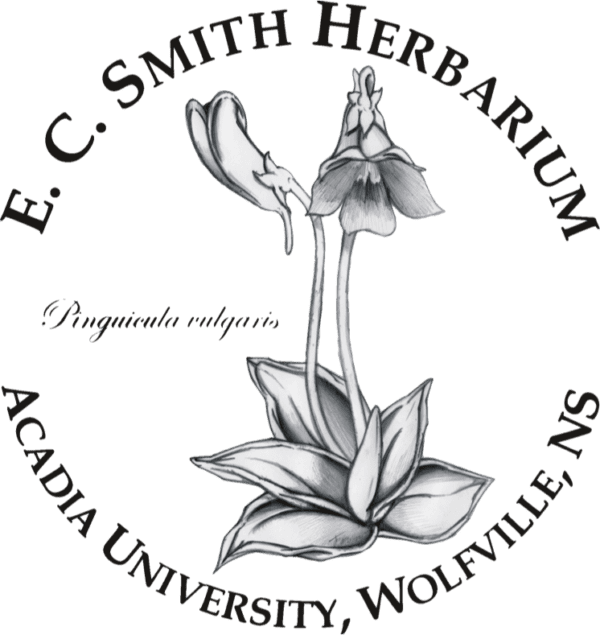The E.C. Smith Herbarium houses the largest collection of dried plants, bryophytes, fungi and lichens in Atlantic Canada. The herbarium moved into the world-class K.C. Irving Environmental Science Centre and became part of the Irving Biodiversity Collection in 2002, along with the Harriet Irving Botanical Gardens and the Acadia Seed Bank.

The preserved specimens and associated data in the E.C. Smith Herbarium are available for scientific study and biodiversity conservation purposes, particularly within the Acadian Forest Region. Our goal is to preserve invaluable historical information and generate new knowledge that promotes sustainability efforts in the region and beyond. All while foresting student engagement and education on the many topics that connect the Herbarium to the world: biodiversity, conservation, species at risk research, the publication of conservation data, the taxonomic treatment of species and ecosystems, and our relationship with the natural world.
Since 1910, we have collected, preserved, and digitized more than 200,000 specimens to document the region’s biodiversity and threatened species and ecosystems. We share this knowledge with conservation-minded researchers, decision-makers, and the global scientific community.
In the E.C. Smith Herbarium, every wild-collected specimen is annotated with vital information such as its location, habitat, local abundance, and population health. Specimens are mounted, labelled, scanned, digitized, and filed. Their respective data are available online as data spreadsheets and scanned images. Physical specimens are available onsite for review with permission from the Collections Manager, or can be loaned via mail with permission and assistance from the Collections Manager. Specimens are frequently used by researchers for processes such as DNA sequencing and morphological analysis.
Data
Researchers, decision-makers, and the global scientific community can explore the E.C. Smith Herbarium’s rich array of specimen data online. These databases are updated as frequently as possible.
- Canadensys (vascular plant species)
- Global Biodiversity Information Facility (vascular plant species)
- Mycology Collections Portal (fungal collections)
How you can help
Opportunities are always available for students or volunteers, ranging from specimen preparation to spending some time outdoors studying plants, lichens, and fungi, or making a donation. Please contact Herbarium staff for more details.

CONTACT US
Alain Belliveau
Irving Biodiversity Collections Manager
E.C. Smith Herbarium & Acadia Seed Bank
K.C. Irving Environmental Science Centre
32 University Ave, Wolfville, NS B4P 2P8
Email
phone: 902 778 0852


 Acadia University
Acadia University